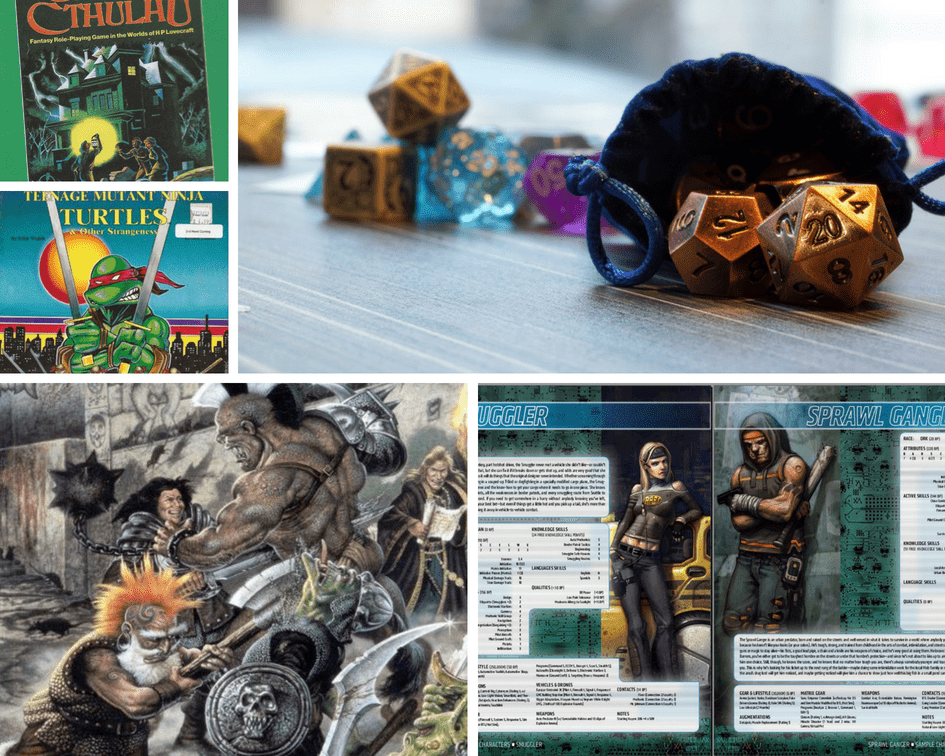

It's impossible, and much less fun, to do everything by yourself," he said.

Teamwork is criticalĭr Olsen said it was vital for players to understand the strengths and weaknesses of their teammates. "So that's really relevant to us in the workplace," Dr Olsen said. He said while there was not yet extensive research, studies so far showed the game helped children improve their communication, self-awareness and critical thinking skills, and adults' team-building abilities developed by playing it. "I was thinking, surely some of these skills are transferable to the workplace, and sure enough there have been people who have written about this," Dr Olsen said. The game centres on one player becoming a dungeon master who "sets the stage" while the other teammates work together to move through challenges set by the master. The book’s artwork, some of which is drawn from the trading card game, Magic: The Gathering, “draws students and faculty from across the world and from other realms in the multiverse”.Jesse Olsen says to play the game well means understanding someone else's perspective. Mental Health Benefits of Role-Playing Games Can role-playing games create a better reality for people with mental health issues like depression, anxiety, or PTSD Role-playing games, or RPGs for short, include popular games like Magic, The Gathering, and Dungeons & Dragons.

Strixhaven is a magically enhanced university where players arrive as students, join colleges, form and handle relationships and deal with sinister forces. “It allows players to be daring in ways that are hard in our daily lives, knowing that if things do go spectacularly wrong, we’ll be able to laugh about it.”Īmerican game designer Amanda Hamon has used teenage life as inspiration for her forthcoming D&D book and adventure setting, Strixhaven: A Curriculum of Chaos. “I think the game is really powerful,” says Crawford. Will you notice the secret door in the castle wall? Can you determine the history of an ancient book? Are you able to charm a unicorn? While failure is not avoided, it is potentially instructive and, often, an excuse for humour and the release of tension. Throughout the game, the player or DM will roll a die to decide the outcome of a decision. Overcoming fear of failure is one of the game’s most notable therapeutic aspects. Having that activity-based format and a collaborative approach gives players support to try new things.” Dungeons & Dragons allows players to be daring in ways that are hard in our daily lives Jeremy Crawford

It fosters friendships that, in unstructured settings, wouldn’t flow as well. “But once they create their character and get used to the structure of the game, they become more outgoing. “Before starting, the players might be more withdrawn and not used to larger social situations,” says Hancock. While there is no shortage of anecdotes about how D&D has transformed the lives of neurodiverse players and their families, published studies are few and small in scope. During the pandemic, that became a shared experience.”įigurines and maps can be used to illustrate the Dungeons & Dragons adventure. Not knowing what is coming up is really anxiety-inducing. “With Covid, we had all these sudden changes, often with short notice, and there was this need to constantly adapt to new rules. “While other people are excited about going out, I’m filled with dread,” Hancock tells me. Studies cited by the Australian Institute of Health and Welfare found reported levels of social anxiety increased over the past two years among all age groups, with young neurodiverse Australians even more likely to have experienced a decline in wellbeing. Some characteristics expressed by some of Hancock’s players – social anxiety, increased empathy, difficulty adapting to change, feeling overwhelmed in noisy environments – have become familiar to many Australians in the wake of lockdowns. We all have a mutual love of gaming, but we all want something different from the session.” Some get really into creating their characters, some are more interested in finding items and exploring the world, others are really interested in how the characters met. “I work out the players’ expectations at the beginning of a game. “It’s about creating a sense of community,” Hancock says.


 0 kommentar(er)
0 kommentar(er)
